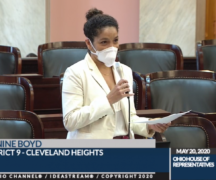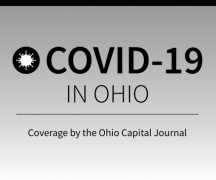BY NICK EVANS
A group of Republican Ohio lawmakers are dead set on raising the threshold for passing amendments to the state constitution and resurrecting an August special election to do so. But some in the party aren’t comfortable with such an aggressive maneuver. Monday, former Ohio Governor Bob Taft, a Republican, spoke out forcefully against it.
“I urge you (1) not to revive the August special election and (2) not to support a constitutional amendment to raise from a simple majority to 60% the voter approval threshold for amendments to the Ohio Constitution,” he wrote in letter to members of the General Assembly.
Later Monday, Cleveland.com reported that former Republican Ohio Gov. John Kasich and former Democratic governors Dick Celeste and Ted Strickland have also all now spoken out against the proposal.
Meanwhile, current Republican Ohio Gov. Mike DeWine on Monday said he would sign legislation to bring back the August election for the proposal, Cleveland.com reported. Just months ago, DeWine signed legislation to eliminate August elections in Ohio.
Bringing back the August election is important to the GOP, because it could help establish that higher threshold just before an abortion rights amendment goes to voters in November.
The Ohio Senate has already signed off on their threshold resolution, SJR 2, and the bill to establish August special elections. In the House, the threshold resolution, HJR 1, has passed committee and is awaiting a hearing on the floor.
Taft’s letter on August elections
Taft’s experience in public office makes him a particularly well-informed messenger. Before serving as governor, he was Ohio’s secretary of state. He described August elections as “too costly” for such limited voter turnout.
“I believe the Ohio General Assembly made the right decision when it enacted legislation last December to outlaw August special elections except for fiscal emergencies facing school districts.”
Taking a swipe at Ohio’s current Secretary, Taft added, “I concur with current Secretary of State Frank LaRose when he declared ‘August special elections aren’t good for the taxpayer, elections officials, voters or the civic health of our state.’”
Last year, LaRose backed the measure eliminating special elections. More recently, he’s been one of the chief supporters of the effort to raise the constitutional threshold.
Most pointedly, Taft criticized lawmakers for advancing the question on the timeline they’re planning.
“It is especially bad public policy to revive the August special election for the purpose of voting on such a consequential constitutional amendment as SJR 2 or HJR 1 which would fundamentally change Ohioans’ voting and constitutional rights,” Taft wrote.
Such a significant question should go to voters, he said, on a November general election ballot, “when there is maximum voter turnout.”
Taft’s letter on raising the threshold
Taft’s time as governor informs his opposition as well. Ohio’s constitution limits how much debt the state can take on without presenting the issue to voters. That cap — $750,000 — is low enough to make virtually any statewide infrastructure effort impossible without cash up front or an issue on the ballot.
During Taft’s administration, he championed two such bond initiatives and knows just how precarious that path can prove.
“If that (60%) threshold had been in effect during my time as Governor, two signature initiatives, the Clean Ohio Fund and the Third Frontier Project, would not have been approved,” Taft explained.
Taft noted the Clean Ohio Fund had bipartisan support and passed easily. But at 57.4%, that question would’ve failed under the changes Republicans envision.
Taft went on explain the Third Frontier Project needed two bites at the apple to pass a simple majority.
“For the state to be able to issue general obligation debt to finance or build highways or schools, to protect the environment or create jobs, you must persuade voters to approve an amendment to the Constitution,” he said.
“With a 60% voter approval requirement, such initiatives may become impossible.”






